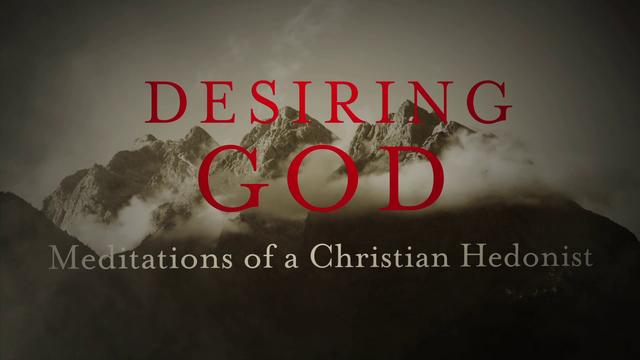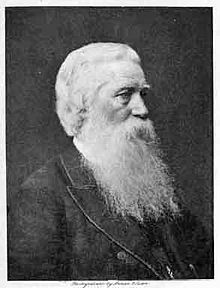
by Bret Capranica | Jul 15, 2015 | Christian Living, General Theology, The Gospel
Each Wednesday evening through the summer months, a group of adults are reading through and discussing the implications of John Piper’s book, Desiring God. If you have opportunity, come join us each Wednesday, 6:30 p.m. at Summit Woods Baptist Church. Here are a few highlights from chapter two. God’s pursuit of praise from us and our pursuit of pleasure in Him are one and the same pursuit. God’s quest to be glorified and our quest to be satisfied reach their goal in this one experience: our delight in God, which overflows in praise. …no one is a Christian who does not embrace Jesus gladly as his most valued treasure, and then pursue the fullness of that joy in Christ that honors Him. The best explanation of Romans 3:23 is Romans 1:23. It says that those who did not glorify or thank God became fools “and exchanged the glory of the immortal God for images.” This is the way we “fall short” of the glory of God: We exchange it for something of lesser value. All sin comes from not putting supreme value on the glory of God—this is the very essence of sin. The wickedness of sin is owing to the implicit disdain for God. Quoting Jonathan Edwards: Our obligation to love, honor, and obey any being is in proportion to his loveliness, honorableness, and authority.… But God is a being infinitely lovely, because he hath infinite excellency and beauty.… So sin against God, being a violation of infinite obligations, must be a crime infinitely heinous, and so deserving infinite punishment.… The eternity of the punishment of...

by Bret Capranica | Sep 11, 2013 | Christian Living
Here are a few notable quotes from John Piper’s chapter on John G. Paton, nineteenth century missionary in the South Pacific (from the book, Filling Up the Afflictions of Christ). I encourage you to read these quotes and consider how we approach the difficulties of our own lives from a God-centered perspective: Paton’s ministry’s lasting effect Today, over a hundred years after the death of John Paton, about 91 percent of the population of Vanuatu identifies itself as Christian, perhaps 14 percent of the population being evangelical (57). Responding to cynics who told him not to go: A certain Mr. Dickson exploded, “The cannibals! You will be eaten by cannibals!” . . . . Paton responded: “Mr. Dickson, you are advanced in years now, and your own prospect is soon to be laid in the grave, there to be eaten by worms; I confess to you, that if I can but live and die serving and honoring the Lord Jesus, it will make no difference to me whether I am eaten by cannibals or by worms; and in the Great Day my Resurrection body will rise as fair as yours in the likeness of our risen redeemer” (58). Various quotes: I do not pretend to see through the mystery of such visitations – wherein God calls away the young, the promising, and those sorely needed for his service here; but this I do know and feel, that, in the light of such dispensations, it becomes us all to love and serve our blessed Lord Jesus so that we may be ready at his call for death and eternity (61). My...

by Bret Capranica | Aug 28, 2013 | Church History, Pastoral Ministry
I am currently reading through John Piper’s biographical sketches on William Tyndale, John Paton, and Adoniram Judson, from his book, Filling Up the Afflictions of Christ. Here are a few salient quotes from the Introduction and the chapter on William Tyndale. Good thoughts for keeping our afflictions in Christ-centered perspective: From the Introduction God’s design for the evangelization of the world and the consummation of his purposes includes the suffering of his ministers and missionaries. . . God designs that the sufferings of his ambassadors is one essential means in the triumphant spread of the Good News among all the peoples of the world. . . . suffering is a result of faithful obedience in spreading the gospel (14). But this voluntary suffering and death to save others is not only the content but it is also the method of our mission. . . . As Joseph Tson puts it in his own case: “I am an extension of Jesus Christ. When I was beaten in Romania, He suffered in my body. It is not my suffering: I only had the honor to share His sufferings” . . . Christ’s suffering is for our propitiation; our suffering is for propagation (15). So the afflictions of Christ are “lacking” in the sense that they are not seen and known and loved among the nations. They must be carried by missionaries. And those missionaries “complete” what is lacking in the afflictions of Christ by extending them to others. (22). God intends for the afflictions of Christ to be presented to the world through the afflictions of his people. God really means for the body of...
by Bret Capranica | Apr 30, 2012 | Bookreviews, Pastoral Ministry, Video
The blend of a pastor and a scholar is a helpful one for the church. Though the average churchgoer may not immediately sense it, a Scripturally deeper pastor makes for a more Scripturally robust people. The blend of a scholar and a pastor is equally helpful. Those of us who have been to seminary know the personal value of having shepherd-hearted scholars who sharpened us while grilling us in the details of grammar and plunging us into reams of reading. While many church-goers may not know it, such scholars have blessed their congregations as well as their pastors. John Piper and D. A. Carson may be two of the best modern examples of pastor-scholars and scholar-pastors. The book they have produced, The Pastor as Scholar and The Scholar as Pastor is an encouraging biographical exhortation from these two men as to how ministry and scholarship have been blended in their respective ministries. Pastors and church members would do well to read this short volume. The contents of the book were first produced as lectures at an event sponsored by The Gospel Coalition. Owen Strachan and David Mathis contribute an introduction and conclusion respectively, and were instrumental in the event that was the genesis for the book. The book contains primarily biographical descriptions from Piper and Carson on the providential work of God to challenge them in terms of academic excellence and pastoral practicalities. Piper’s chapter on “The Pastor as Scholar,” biographically chronicles his own pilgrimage from childhood to doctoral studies in Germany, to pastoral ministry in Minneapolis. The chapter demonstrates the potential pitfalls of what some pursue as academic...

by Bret Capranica | Apr 27, 2011 | Pastoral Ministry, Preaching
Taking a few mid-week minutes to think about how practical the resurrection is impacting our lives. Click HERE to purchase a copy of John Piper’s book, Desiring...











